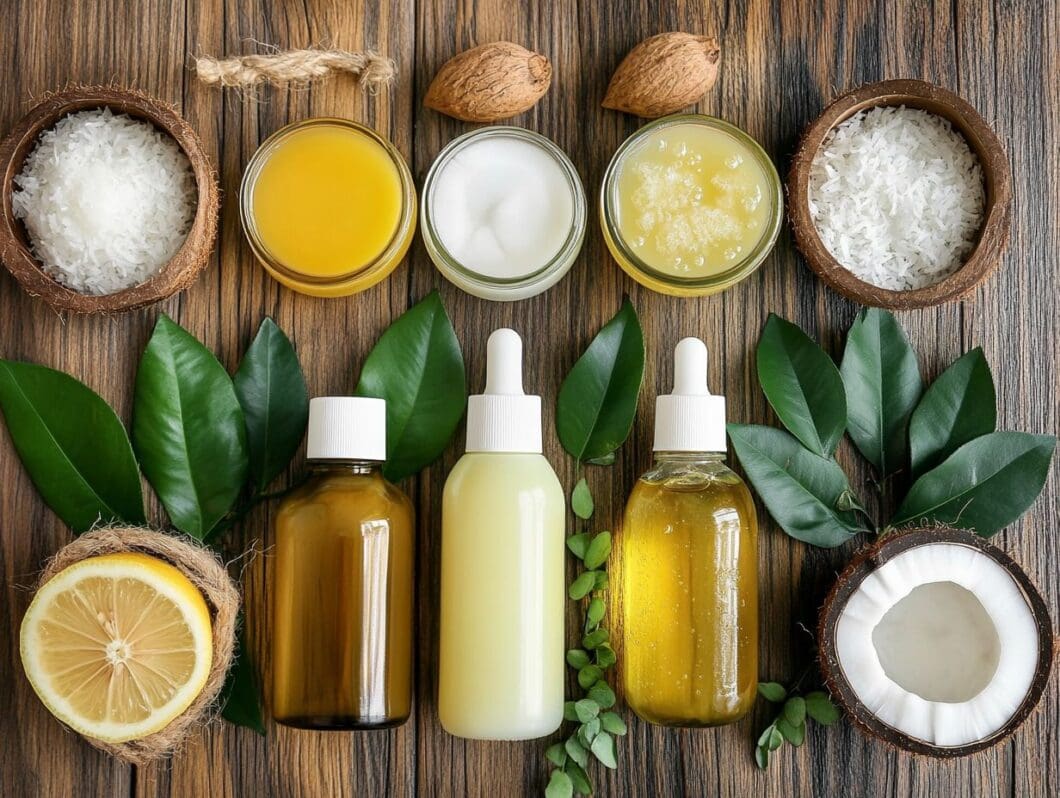Dandruff can be an irritating and persistent issue, affecting not just your scalp but also your confidence.
Understanding the causes and contributing factors is crucial for effective treatment.
This article explores various solutions—from over-the-counter shampoos and treatments to natural home remedies.
It also discusses how to combine these approaches for a personalized treatment plan, alongside tips for preventing future flare-ups.
Get ready to reclaim your healthy scalp and say goodbye to those pesky flakes!
Key Takeaways:
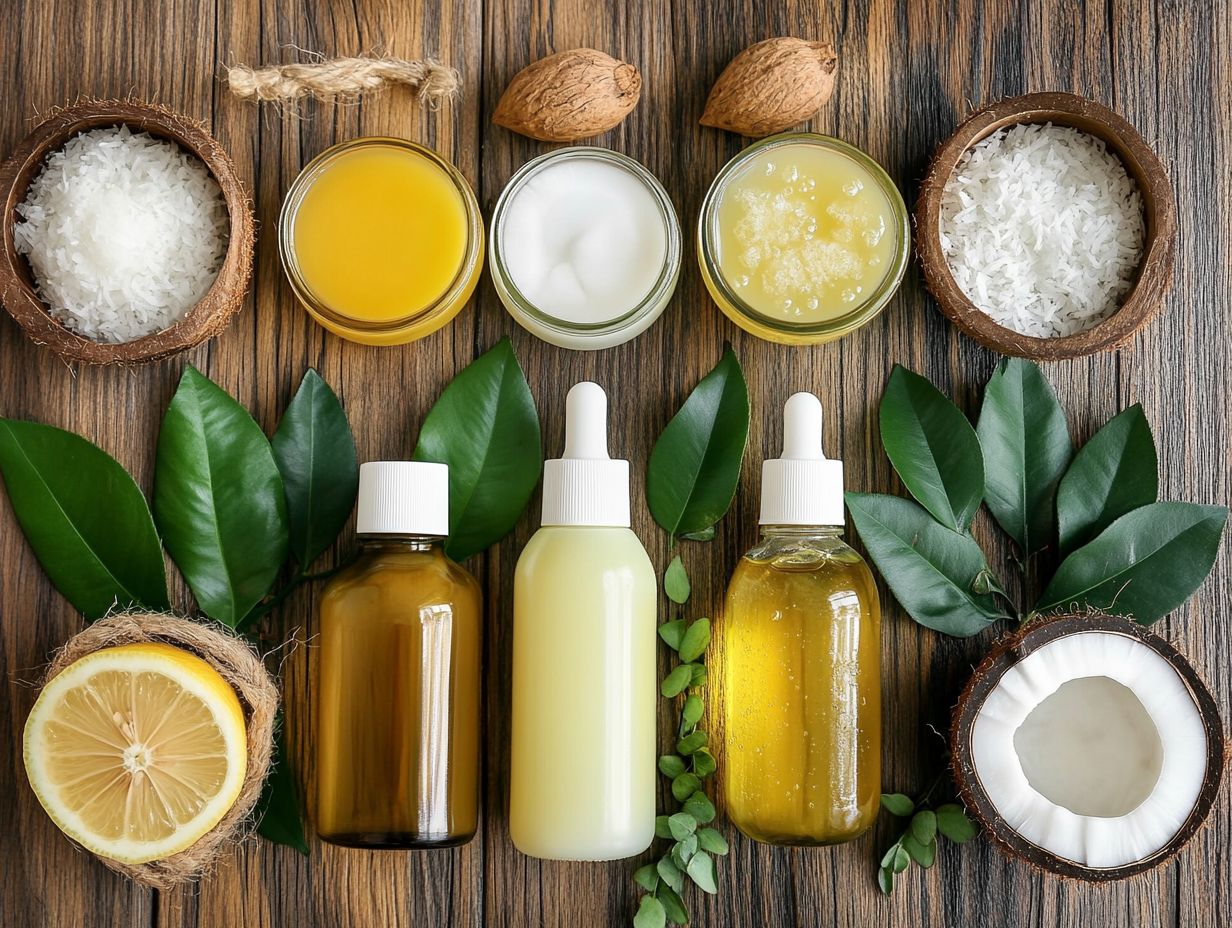
Understanding Dandruff
A comprehensive understanding of dandruff is crucial for effective scalp care, as it is a common skin condition characterized by skin flaking and associated symptoms such as itchiness and redness. This prevalent issue can arise from various factors, including the overgrowth of malassezia yeast on the scalp, which may result in seborrheic dermatitis.
Identifying the underlying causes is vital for determining the most appropriate dandruff treatment. For more information on effective methods, check out this article on Dandruff Solutions: Products and Home Remedies. Furthermore, understanding how to maintain skin health can significantly enhance overall scalp well-being.
Causes and Contributing Factors
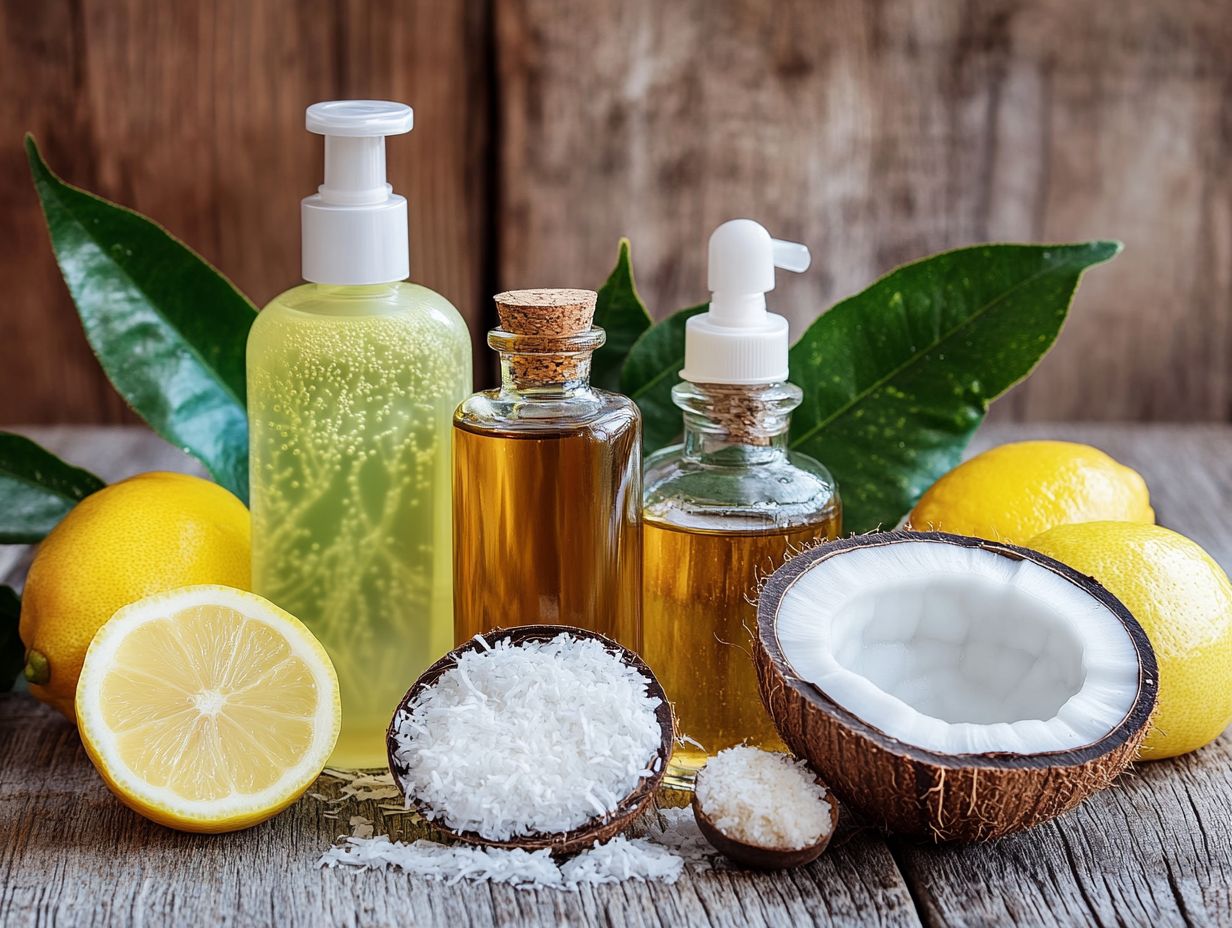
Dandruff can result from several factors, including the presence of malassezia yeast, which proliferates on the scalp and may contribute to seborrheic dermatitis.
Plus this common fungal element, various other factors play a crucial role in exacerbating the condition. Stress is a significant contributor, as it often disrupts the natural balance of the scalp and increases oil production, creating an environment conducive to fungal growth. Additionally, allergic reactions to hair products or specific ingredients can provoke irritation, leading to flaking and discomfort. Environmental conditions, such as dry air or extreme weather, can also deplete moisture from the scalp, making it more prone to dryness and irritation.
A comprehensive understanding of how these factors interact is essential for effectively managing and preventing dandruff. For more information, check out Dandruff Solutions: Products and Home Remedies.
Over-the-Counter Products for Dandruff
Over-the-counter products provide a range of dandruff treatment options, including specialized shampoos formulated with active ingredients specifically intended to address flaking skin and alleviate scalp conditions. For more information, you can check out Dandruff Solutions: Products and Home Remedies.
Types of Dandruff Shampoos and Treatments
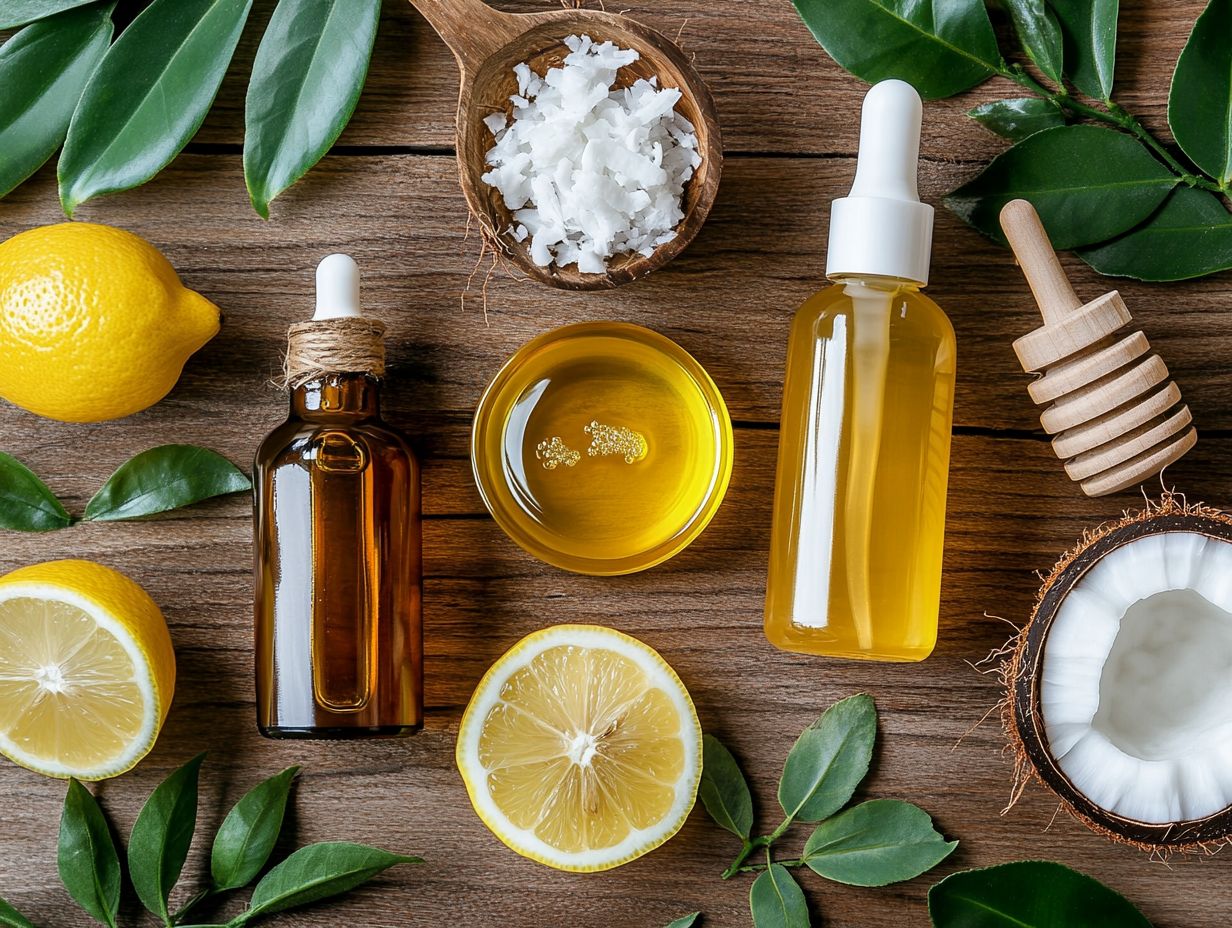
When selecting a dandruff shampoo, it is essential to consider the various types available, including those containing tea tree oil, coal tar, or ketoconazole, as each offers distinct benefits for scalp care.
A comprehensive understanding of the active ingredients in these formulations can significantly enhance the effectiveness of dandruff management. Tea tree oil is recognized for its natural antifungal and antibacterial properties, providing a gentle yet effective solution for alleviating symptoms.
Conversely, coal tar functions by slowing the rapid production of skin cells on the scalp, thereby effectively reducing flakiness.
Ketoconazole, a potent antifungal agent, directly targets the fungi that often contribute to dandruff, offering relief from itchiness and irritation.
Each of these ingredients plays a crucial role in maintaining scalp health, balancing moisture, and combating unwanted flakes, ultimately contributing to overall hair vitality.
Home Remedies for Dandruff
Home remedies for dandruff offer natural solutions that can effectively alleviate symptoms and promote scalp health. Options such as coconut oil, apple cider vinegar, and aloe vera have gained popularity due to their beneficial properties.
Natural and DIY Solutions
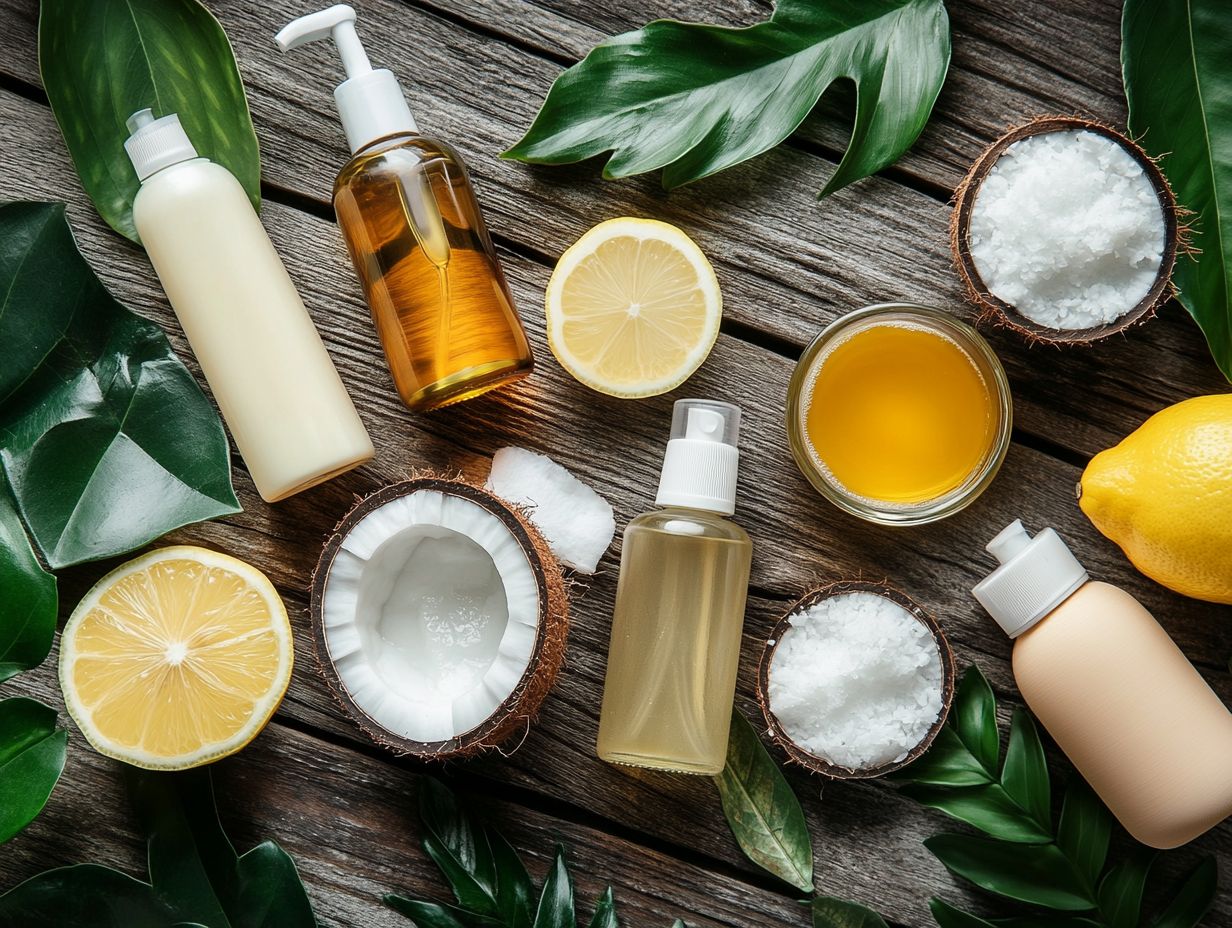
Natural and DIY solutions for dandruff can be conveniently prepared at home using simple ingredients such as coconut oil and tea tree oil, which provide effective relief from scalp irritation.
These remedies not only alleviate the discomfort associated with flaky skin but also promote a healthier scalp environment. For instance, coconut oil is renowned for its moisturizing properties, which help soothe dryness, while tea tree oil possesses antifungal qualities that can address the underlying causes of dandruff.
Additionally, other ingredients such as aloe vera gel and apple cider vinegar may be incorporated into these treatments. Aloe vera is effective in soothing inflammation and hydrating the scalp, whereas apple cider vinegar assists in balancing the scalp’s pH level, thereby creating an unfavorable environment for yeast growth.
Together, these natural solutions offer a holistic approach to dandruff relief, ensuring that the scalp remains nourished and revitalized.
Combining Products and Home Remedies
The integration of commercial products and home remedies can establish a comprehensive dandruff treatment plan. This approach effectively addresses both immediate symptoms and promotes long-term scalp health through a systematic shampoo regimen and the use of Dandruff Solutions: Products and Home Remedies.
Creating an Effective Dandruff Treatment Plan
Creating an effective dandruff treatment plan necessitates a thorough understanding of the scalp microbiome, an assessment of individual hair texture, and the development of tailored solutions that enhance the effectiveness of shampoos while alleviating symptoms.
To achieve lasting results, individuals should begin by identifying the specific factors contributing to their dandruff, such as dryness, oiliness, or sensitivity. This initial assessment is critical in guiding the selection of appropriate products, including medicated shampoos and conditioners designed specifically to target scalp health.
Employing proper application techniques, such as massaging the treatment into the scalp for optimal absorption, can significantly enhance the effectiveness of the selected products. Understanding one’s unique hair and scalp characteristics is essential, as this knowledge informs both product selection and the frequency of application, ultimately fostering a comprehensive approach to scalp care.
Preventing Dandruff
Preventing dandruff necessitates the establishment of a proactive scalp care routine. It is advisable to incorporate health strategies such as an anti-inflammatory diet, which is rich in omega-3 fatty acids, to promote overall skin health and minimize irritation.
Tips for Maintaining a Healthy Scalp
To maintain a healthy scalp, it is crucial to adopt appropriate hair care practices, including regular exfoliation and hydration, to prevent dryness and irritation.
Incorporating a scalp-friendly shampoo that is free from harsh chemicals can significantly enhance the scalp’s balance. The use of natural oils, such as tea tree or coconut oil, can alleviate irritation and provide essential nutrients to the skin.
Establishing a routine that includes gentle scalp massages can stimulate blood circulation and promote hair growth. Additionally, regular hydration—achieved not only through topical treatments but also by consuming adequate water—is essential for maintaining moisture levels and addressing flaking.
By adhering to these practices, individuals can cultivate a comfortable and nourished scalp, ultimately leading to healthier hair overall.


